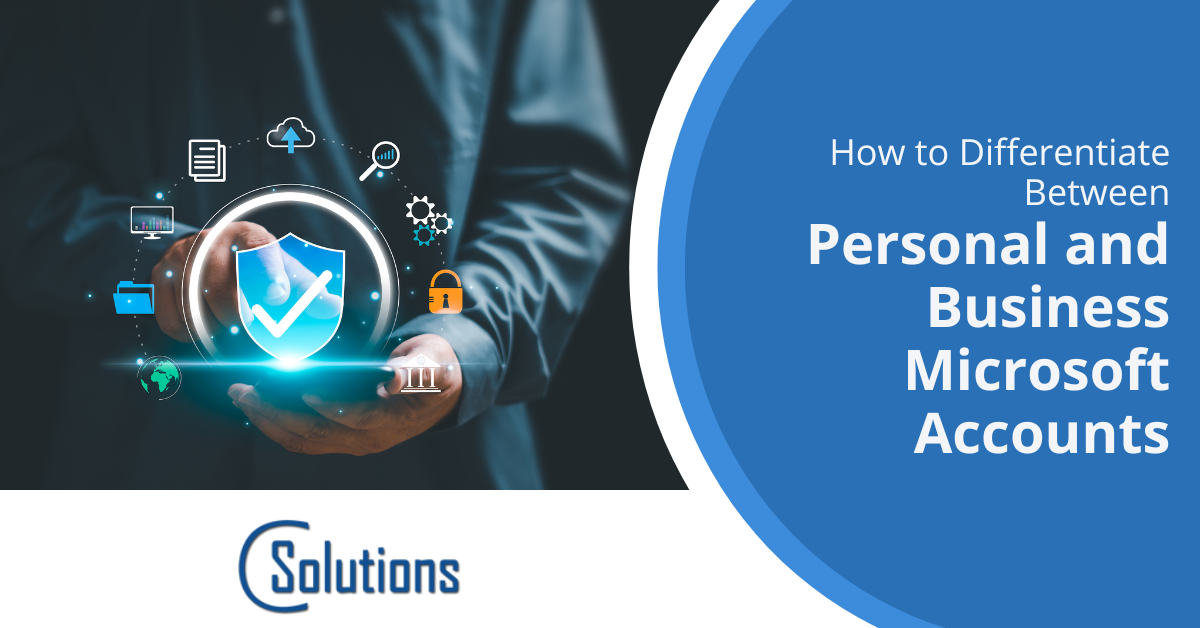How to Differentiate Between Personal and Business Microsoft Accounts

Microsoft accounts have become an integral part of our personal and professional lives. However, many users often find themselves confused when distinguishing between personal and business Microsoft accounts.
The confusion can lead to issues with data privacy, access permissions, and security. In this comprehensive guide, we will walk you through the key differences between personal and business Microsoft accounts, enabling you to make informed decisions about which account type is best suited for your needs.
Understanding Microsoft Accounts
What is a Personal Microsoft Account?
A personal Microsoft account is primarily designed for individual use. It allows users to access a wide range of Microsoft services such as Outlook, OneDrive, and Xbox Live. When you sign up for a personal Microsoft account, you get access to a unique email address, usually in the form of yourname@outlook.com or yourname@hotmail.com.
This account is ideal for personal email communication, storing personal files on OneDrive, and using various Microsoft apps and services for non-commercial purposes.
What is a Business Microsoft Account?
On the other hand, a business Microsoft account, also known as a work or organizational account, is intended for business use. It is typically provided by an employer to its employees, allowing them to access Microsoft services and collaborate within the organization.
The email address associated with a business Microsoft account is often in the form of yourname@companyname.com, using the organization’s domain name. This account provides access to Microsoft 365, SharePoint, Teams, and other enterprise-level applications.
Differentiating Features
Sign-in Process and User Interface
One of the key distinctions between personal and business Microsoft accounts lies in the sign-in process and user interface. When you sign in to a personal account, you use your unique email address and password to access services like Outlook and OneDrive.
In contrast, business accounts are usually managed through a centralized system by the organization’s IT department. Employees use their work email and a secure password to access company-related resources and applications.
Account Management and Ownership
Another significant difference between the two account types is account management and ownership. Personal Microsoft accounts are entirely managed by the individual user. You have control over your account settings, password recovery options, and profile information.
On the other hand, business accounts are typically managed by the organization’s IT administrators. They can add or remove employees, enforce security policies, and control access permissions to various applications and data.
Access to Microsoft 365 Services
One of the primary reasons businesses opt for business Microsoft accounts is access to Microsoft 365 services. Microsoft 365 is a suite of productivity tools that includes popular applications like Word, Excel, PowerPoint, and Teams.
Business accounts have access to the full suite, enabling employees to collaborate, communicate, and work efficiently within the organization. Personal accounts, while offering various free Microsoft services, may not include the full range of Microsoft 365 applications.
OneDrive Storage
OneDrive, Microsoft’s cloud storage service, is available for both personal and business accounts. However, the storage capacity may differ between the two. Personal accounts usually come with a limited amount of free storage, while business accounts may have access to larger storage allocations, which are often managed and monitored by the organization.
Security and Data Privacy
Security is a paramount concern for both personal and business Microsoft accounts. However, the security measures may vary. Personal accounts rely on standard security features such as two-factor authentication (2FA) to protect user data. Business accounts, in addition to 2FA, often have access to more robust security features like single sign-on (SSO) and data loss prevention (DLP) tools. Additionally, business accounts’ data is subject to the organization’s data privacy and compliance policies.
Making the Right Choice
Personal Account Use Cases
A personal Microsoft account is an excellent choice if you primarily use Microsoft services for personal purposes. It is suitable for:
- Personal Email: Managing personal emails using Outlook or Hotmail.
- OneDrive Storage: Storing personal files and photos in the cloud.
- Xbox Live: Accessing and playing games on Xbox consoles.
Business Account Use Cases
A business Microsoft account is essential for those who require access to Microsoft 365 services and collaborate within an organization. It is suitable for:
- Microsoft 365 Apps: Using Word, Excel, PowerPoint, and other Microsoft 365 applications for work-related tasks.
- Outlook for Business: Managing work emails and calendar appointments.
- Teams: Collaborating with colleagues through messaging, video calls, and file sharing.
Get Started Today
Understanding the difference between personal and business Microsoft accounts is crucial for making the right choice for your specific needs. Personal accounts are ideal for individual use, personal communication, and basic Microsoft services. Business accounts, on the other hand, provide access to the full suite of Microsoft 365 applications and offer advanced security features for organizations.
When deciding which account type to use, consider your requirements and whether you need access to business-oriented tools and features. If you are unsure about which account type is best for you or your organization, don’t hesitate to contact C Solutions IT. We can provide personalized advice and solutions to meet your Microsoft account needs.
